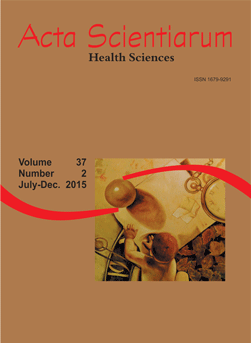<b>Static and dynamic impairment following stroke reflecting hemispheric asymmetry for postural control
Resumo
This paper evaluates whether there is a relationship between postural control and hemispheric asymmetry following a stroke. Twenty right or left brain-damage patients and ten healthy control subjects were included in this study. The static (weight symmetry) and dynamic posture (velocity, maximal excursion and the directional control of the center of mass) were analyzed by quantitative posturography. Factors such as clinical neurological assessment, postural skills, muscle strength, spasticity, sensitivity and hemineglect were also collected. Results showed that in static posture, right-brain-damaged patients had worse performance. In the dynamic tests, left-brain-damaged patients were selectively impaired on maximal excursion and the directional control of the center of mass, while right-brain-damaged patients were more impaired on movement velocity. The results show specific mechanisms for modulating posture depending on the damaged side. These findings support the idea that each hemisphere contributes differently to static and dynamic postural control.
Downloads
DECLARAÇÃO DE ORIGINALIDADE E DIREITOS AUTORAIS
Declaro que o presente artigo é original, não tendo sido submetido à publicação em qualquer outro periódico nacional ou internacional, quer seja em parte ou em sua totalidade.
Os direitos autorais pertencem exclusivamente aos autores. Os direitos de licenciamento utilizados pelo periódico é a licença Creative Commons Attribution 4.0 (CC BY 4.0): são permitidos o acompartilhamento (cópia e distribuição do material em qualqer meio ou formato) e adaptação (remix, transformação e criação de material a partir do conteúdo assim licenciado para quaisquer fins, inclusive comerciais.
Recomenda-se a leitura desse link para maiores informações sobre o tema: fornecimento de créditos e referências de forma correta, entre outros detalhes cruciais para uso adequado do material licenciado.
























5.png)







